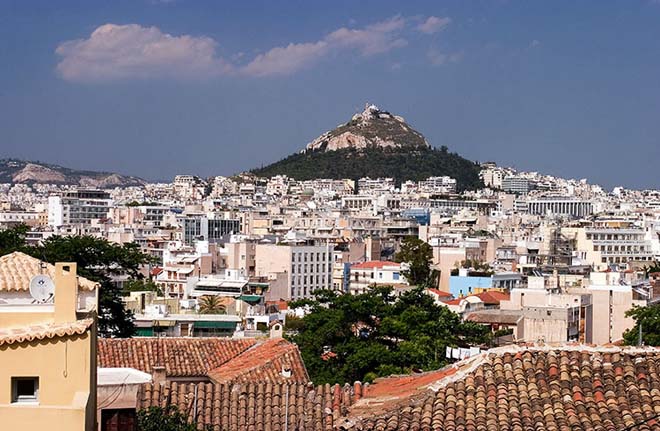A nationwide strike against austerity measures was set to paralyse Greece Friday, with government departments, municipal offices, banks, hospitals, schools and transport services all shutting down, DPA reported.
The 3-hour strike and demonstration called by Greece's largest private and public sector labour unions will force the closure of government ministries, state services, municipal offices and banks beginning at noon, while schools will remain closed for the day.
Athens announced the latest in a series of public sector cuts this week, aimed at pulling debt-plagued Greece from the brink of a bankruptcy which has also threatened the stability of the euro.
Meanwhile Greek Prime Minister George Papandreou was due in Berlin Friday for talks with Chancellor Angela Merkel, the leader of Europe's largest economy and widely seen as holding the veto over any EU bail-out of Greece.
Hospitals were functioning with emergency staff as doctors also joined in the walkout and journalists are also joining the strike from 0900 until noon.
Rail and road transport across the country have been cancelled for 24-hours while air traffic controllers called a four-hour walk-out beginning at noon.
Olympic Air and Aegean said they was forced to cancel more than 20 flights and reschdedule the times for another 74 domestic and international flights.
The country`s national theatre cancelled all productions for Friday and the Actor`s Union also agreed to strike.
The two main unions, which represent 2.5 million workers or roughly half of the country`s workforce urged workers to demonstrate on Friday and to hold a mass 24-hour strike on March 16.
The new budgetary measures, the third in recent months, include cutting public sector bonuses by 30 per cent, freezing pensions, a new tax on luxury goods, alcohol and cigarettes and increasing consumer taxes - including a 21 per cent sales tax.
"The measures are unjust and will only hurt the lower and middle-classes and push the country into a deeper recession with higher unemployment," said GSEE union President Giannis Panagopoulos.
Hundreds of demonstrators from the country's labour group PAME reportedly blocked Athens` two luxury hotels, the Hilton and the Grand Bretagne, on Friday preventing tourists and guests from entering or leaving the buildings.
Elsewhere in Athens, hundreds of employees of former state-owned Olympic Airways continued to occupy the General Accounting Office in central Athens, blocking roads outside.
More than 4,000 employees were laid-off after Olympic Airways was sold to Marfin Investment Group Holdings after several unsuccessful privatisation attempts in 2009.
Greece is now awaiting support from the European Union after announcing a new wave of cuts, worth some 4.8 billion euros (6.5 billion dollars) in a bid to avert bankruptcy.
Greece's newly elected Socialists admitted to the EU last October that its budget deficit had reached a staggering 12.7 per cent of GDP in 2009.
The country's 300-billion-euro mountain of debt and its accountancy deceptions have shaken faith in the strength of the euro, with EU partners fearing that the unstable market will spread to other eurozone members that have big deficits, such as Spain and Portugal.
Opinion polls conducted before the latest set of measures showed more than half of those surveyed backed the government`s efforts to deal with the crisis, but the unions are stepping up pressure with more protests.
Greece has pledged to cut its deficit from 12.7 per cent of gross domestic product (GDP) in 2009 to the 3-per-cent limit prescribed by the European Union by 2012, with a 4-percentage-point reduction envisaged in 2010.
The state of Greece`s troubled public finances nearly sparked a run on the euro, and hiked the country`s borrowing costs.
Analysts say social unrest is likely to do little to calm international investors, who have dragged down the value of the euro and boosted the risk premium on buying Greek government bonds in recent weeks amid fears that Greece could default on its debt.
Athens will need to present further belt-tightening measures by March 16, when it is due to present its first monthly report to the European Commission on the state of its public finances.






